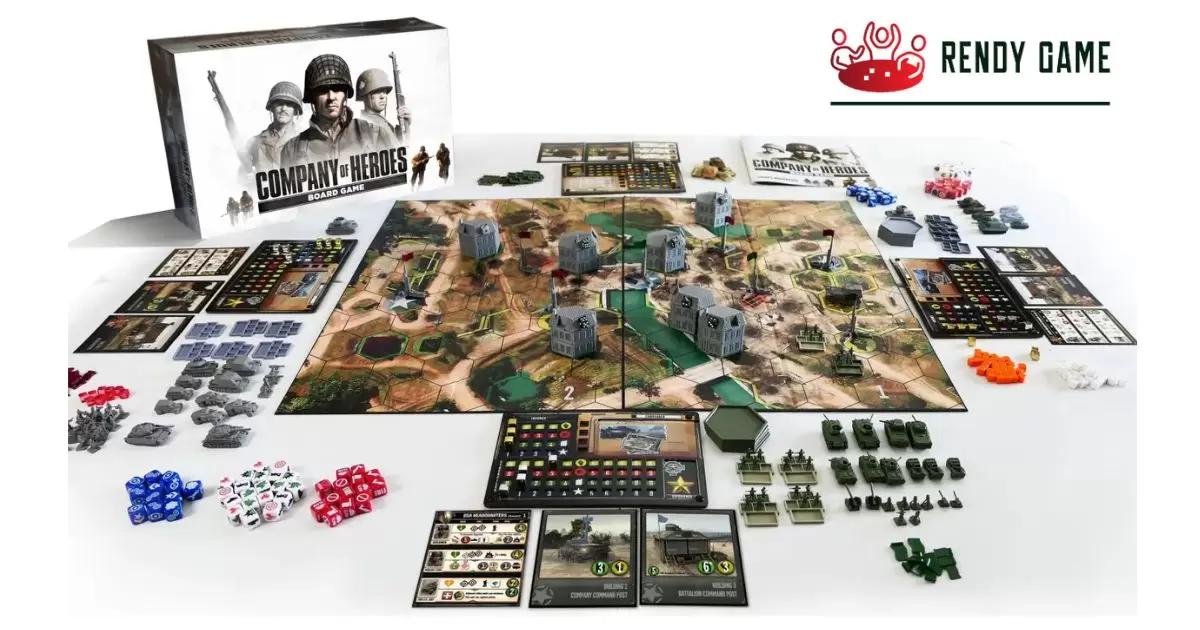A board game company is a business entity that designs, produces, and distributes board games. Board games are tabletop games that involve players moving pieces or counters on a premarked surface, often according to a set of rules.
Whether you have a unique game concept in mind or are interested in curating and producing existing games, How to start a board game company is a question that sparks curiosity and excitement among aspiring entrepreneurs. Imagine turning your passion for board games into a thriving business venture.
Starting a board game company involves a blend of creativity, business acumen, and strategic planning. Begin by honing your game design skills and developing a compelling and engaging concept. Conduct thorough market research to identify potential competitors and understand your target audience.
Crafting Your Game Concept
Begin by brainstorming creative and innovative ideas for your board game. Consider the theme, mechanics, and overall experience you want to offer players. Sketch out a basic outline of the gameplay and rules. As you refine your concept, focus on what makes your game unique and enjoyable.
Test the concept with friends or fellow enthusiasts to gather feedback and make necessary adjustments. A compelling game concept sets the foundation for a successful board game company.
Developing Engaging Board Game Designs
Once you’ve solidified your game concept, shift your attention to crafting visually appealing and functional board game designs. Pay attention to the aesthetics, ensuring that the artwork and components complement the theme. Simplicity is key, as clear designs enhance the overall gaming experience.
Collaborate with talented artists or graphic designers to bring your vision to life. Test the design elements with potential players to ensure clarity and user friendliness. A well designed board game not only attracts players but also enhances the enjoyment and replay value of your product.
Understanding the Board Game Market
Entering the world of board game entrepreneurship begins with a thorough understanding of the market dynamics. Research current trends, player preferences, and emerging themes. Consider the age groups and interests that dominate the market. Identify gaps or underserved niches where your unique game concept could shine.
This insight helps tailor your game design and marketing strategies to align with the demands of the ever evolving board game landscape. A comprehensive grasp of the market ensures that your board game company is well positioned for success.
Identifying Competitors and Target Audience

A critical step in launching a board game company is recognizing the competitive landscape and defining your target audience. Conduct a detailed analysis of existing board game companies, studying their game portfolios, marketing approaches, and customer engagement.
This information enables you to differentiate your products and carve a distinct identity in the market. Simultaneously, pinpointing your target audience is crucial. Consider demographics, gaming preferences, and purchasing behaviors.
Tailoring your games to a specific audience enhances market resonance, making it easier to connect with potential customers and stand out in a crowded field. By understanding competitors and honing in on your target audience, you lay the foundation for a strategic and successful board game venture.
Prototyping Strategies for Success
Creating a successful board game prototype requires attention to detail and a commitment to refining your initial concept. Start by sketching out the game’s components and rules, focusing on clarity and simplicity. Assemble a prototype using affordable materials or digital tools to visualize the gameplay.
Once you have a basic version, playtest it with a diverse group to gather feedback and identify areas for improvement. Iteratively refine your prototype based on playtesting insights, ensuring that the game mechanics are enjoyable and the rules are easy to understand.
| Prototyping Strategies for Success |
| Sketching Concepts Begin by sketching out your board game’s components and rules to create a visual representation of your concept. |
| Affordable Materials Use cost effective materials or digital tools to assemble a prototype, ensuring accessibility during the early stages of development. |
| Playtesting Iterations Conduct playtests with a diverse group to gather feedback. Iterate your prototype based on insights to refine game mechanics and enhance player experience. |
| Clear Communication Clearly communicates your vision and specifications to potential collaborators, investors, or manufacturers, emphasizing the importance of the prototyping phase. |
| Visual Appeal Pay attention to the visual appeal of your prototype, as a well crafted and visually engaging prototype can generate interest and support. |
Navigating Manufacturing Challenges
Navigating manufacturing challenges is a pivotal step in bringing your board game to market. Research and choose a reputable manufacturer that aligns with your production needs and budget. Clearly communicate your specifications to the manufacturer, covering aspects like materials, quality standards, and packaging.
Keep a close eye on production timelines and anticipate potential delays. Factor in shipping and distribution logistics, ensuring a smooth transition from manufacturing to reaching the hands of your audience.
Building a Captivating Online Presence
Building a captivating online presence is essential for the success of your board game company. Start by creating a professional website that showcases your company and games. Use high quality visuals, engaging content, and clear navigation to capture visitors’ attention.
Regularly update your website with news, blog posts, and game releases to keep it dynamic and relevant. Establish a strong presence on social media platforms such as Instagram, Facebook, and Twitter, engaging with your audience through posts, comments, and shares.
Leveraging Social Media for Board Game Promotion
Social media is a powerful tool for promoting your board game and connecting with your audience. Utilize platforms like Instagram, Twitter, and Facebook to share engaging content, such as sneak peeks of game components, behind the scenes footage, and announcements.
Create visually appealing posts that highlight the unique features of your board games and encourage followers to share and interact. Run targeted ad campaigns to reach specific demographics and expand your reach.
Establishing Offline Strategies for Success
When launching a board game company, don’t overlook the power of offline strategies. Participating in local events and conventions provides an excellent opportunity to showcase your games to a diverse audience. Consider setting up engaging booths with demo stations, allowing potential customers to experience your board games firsthand.
Forge partnerships with local retailers to have your games featured in stores, enhancing visibility and accessibility. Attend board game meetups and networking events to connect with fellow enthusiasts, retailers, and distributors.
Funding Options for Your Board Game Company
Exploring funding options is a crucial step in starting a board game company. Traditional financing methods, such as personal savings or loans, provide a foundation for initial investments. Consider seeking investors who share your passion for board games.
Collaborating with angel investors or venture capitalists can inject capital into your business, supporting aspects like production, marketing, and distribution. Another avenue is seeking grants from gaming associations or industry specific foundations.
Crowdfunding for Initial Production Costs
Crowdfunding platforms offer a viable solution for raising initial production costs for your board game company. Websites like Kickstarter and Indiegogo allow you to present your game concept to a global audience, inviting backers to contribute funds in exchange for exclusive rewards or early access to the game.
Craft a compelling campaign that highlights the uniqueness of your board game, including engaging visuals and a detailed funding breakdown. Effectively leveraging crowdfunding not only secures necessary funds but also generates buzz and establishes a community of loyal supporters invested in the success of your board game.
Enjoying Rewards in Board Game Entrepreneurship
Embarking on the journey of board game entrepreneurship comes with its challenges, but the rewards are equally fulfilling. Witnessing players enjoy and engage with your creations brings a unique sense of accomplishment. Positive reviews and word of mouth recommendations contribute to the growth of your brand and games.
Establishing a loyal customer base opens doors to potential expansions, collaborations, and partnerships within the gaming industry. Beyond financial gains, sell a board game idea to a company, the joy of contributing to the board gaming community and creating memorable experiences for players is a rewarding aspect of board game entrepreneurship.
FAQs
What are the key steps in starting a board game company?
Craft a unique game concept, understand the market, create prototypes, explore manufacturing options, and establish a strong online and offline presence.
How can I fund my board game company?
Consider personal savings, loans, seeking investors, or exploring crowdfunding platforms like Kickstarter for initial production costs.
What offline strategies can boost the success of my board game company?
Participate in local events, collaborate with retailers, attend meetups, and network to enhance community engagement and visibility.
Is crowdfunding a viable option for board game entrepreneurs?
Yes, platforms like Kickstarter and Indiegogo offer a global audience the chance to contribute funds in exchange for exclusive rewards or early access to your game.
What are the rewards of board game entrepreneurship?
Beyond financial gains, enjoy the fulfillment of witnessing players engage with your creations, positive reviews, and the potential for brand growth and industry collaborations.
Conclusion
The exciting journey of starting a board game company is like rolling the dice on an adventure filled with creativity and challenges. As you venture into game design, remember to let your passion guide you. Crafting unique and engaging board game concepts sets the stage for success, drawing players into the magic of your creations.
The satisfaction of seeing players immersed in your games, positive reviews echoing in the community, and the joy of contributing to the board game landscape are the true treasures of this journey. Challenges may arise, but each obstacle is a chance to learn and grow.

